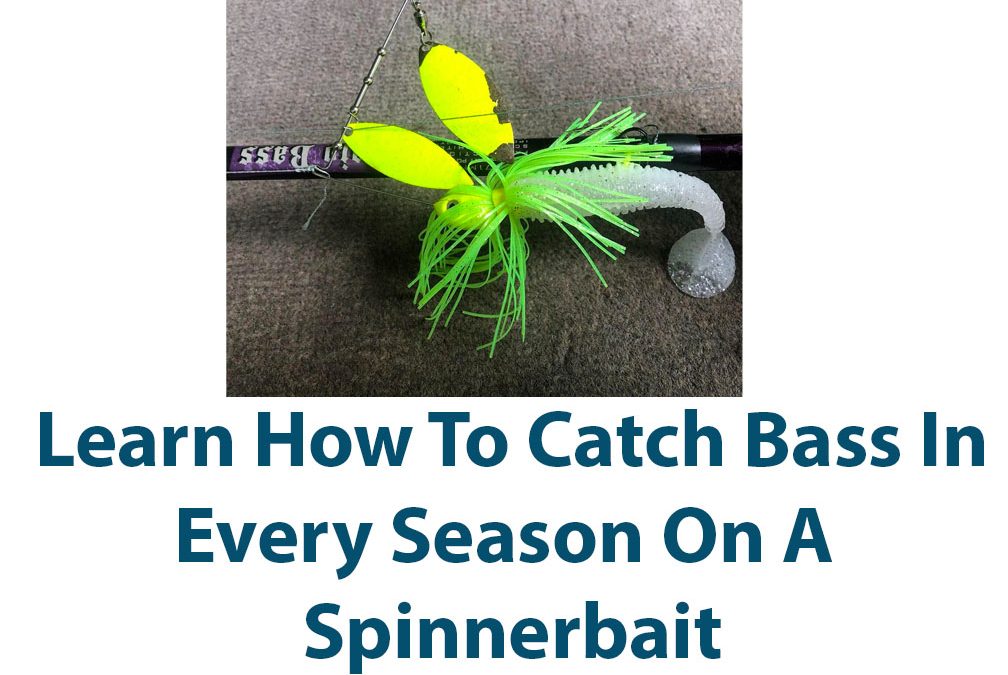Introduction
Hello and welcome to my tutorial on using spinnerbaits to capture bass throughout the year. I’ve spent countless hours as an avid angler honing my skills and discovering new strategies to capture more fish. Since I can remember, spinnerbaits have been a mainstay in my tackle box, and for good reason. They are adaptable lures that may be used in a range of fishing situations and can imitate different types of baitfish. I’ll go over the finest spinnerbait techniques for the winter, pre-spawn, spawn, post-spawn, summer, and fall in this article. So let’s get going!
Winter
Slow and steady fishing is what most fishermen envision when they think of winter fishing. Winter spinnerbait fishing is no different. Bass typically go to deeper water as the temperature drops. Because of this, fishing in the winter is an excellent time to use a slow-rolling spinnerbait. When retrieving the bait using the slow rolling approach, you move extremely slowly. Because spinnerbait blades produce a modest vibration that attracts bass without being overly aggressive, this approach works well with spinnerbaits.
Natural hues like white or silver are excellent options when it comes to color since they can mimic the hue of shad, a typical wintertime food source for bass. A 1/4 to a 1/2 oz bait should be adequate, but it’s always a good idea to have a variety of sizes in your tackle box to adapt to the fishing conditions.
Additionally, you should think about the depth at which you are fishing. Fishing around drop-offs or cover close to the deeper areas of the lake is an excellent place to start because bass often go to deeper water in the winter. I prefer to use a heavier bait in the winter because of this. This will assist in lowering the bait to the lake’s bottom, where the fish are.
Pre-Spawn
Bass start to travel from deeper water to shallower water when winter transitions into spring in order to get ready for the spawn. This action makes the pre-spawn a thrilling period to bass fish. Bass start to move into shallow water at this time as well as shad. This makes using a spinnerbait with a quicker retrieve ideal. You can get the bass’s attention by utilizing a faster retrieve to mimic the shad’s movements.
The clarity of the water must be taken into account while determining color. Silver and gold are natural colors that look good in clean water. Bright hues like chartreuse and orange can aid the bass in finding your bait in murky water. A 1/4 to 3/8 oz bait is an excellent place to start when it comes to size. To efficiently reach the fish, you might need to modify the size of your bait based on the depth at which you are fishing.
Bass prefer to relocate to transitional locations when they get closer to their spawning grounds during the pre-spawn. This could be anything from a modest decrease in depth to a structural alteration. Therefore, when fishing in the pre-spawn, it’s crucial to pay attention to depths and undersea structure.
Spawn
Bass fishing is at its most magnificent during the spawn. Bass go into shallow water to spawn during this time, making them highly approachable to fisherman. To protect the fishery, it’s crucial to handle fish cautiously and engage in catch-and-release fishing because this is a very vulnerable time for them.
The secret to successful bass fishing during the spawn is to use slow, consistent retrieves. This is due to the bass’s greater attention to nest defense than to feeding. A slow and steady retrieve will aggravate the bass and prompt them to strike for this reason.
Regarding color, earthy hues like green or brown might be fantastic choices at this time because they can blend in with the surrounding environment. Lighter lures are preferable in terms of size since they better resemble any nearby smaller baitfish.
Fishing in shallow brush piles or shelter close to the spawning grounds is crucial during the spawn. It’s also crucial to keep in mind that bass may become more aggressive when defending their nests, so using a trailer hook is a good option to guarantee a strong hookset.
Post-Spawn
Bass will return to deeper water after the spawn to recover. Post-spawn fishing might be difficult at times, but it can also be highly rewarding. Bass are more likely to be aggressive during this season, and a variety of lures, including spinnerbaits, can be used to catch them.
It’s crucial to fish with a more aggressive retrieve during the post-spawn. This can be achieved by utilizing a bait with a more aggressive blade arrangement and a faster retrieve. A blade’s angular design can increase vibration and make your bait more noticeable to fish.
The clarity of the water must be taken into account while determining color. Natural colors perform well in clean water, just like in the pre-spawn, but brighter colors may work better in murky water. A 3/8 to 1/2 oz bait is a decent place to start when it comes to size.
It’s crucial to fish in shallow to mid-depth water around cover during the post-spawn. This could be anything from weed beds to laydown logs. You can improve your chances of catching a hungry post-spawn bass by fishing close to these places.
Summer
Bass typically go to deeper water to stay cool as the temperature rises. Summer fishing might be difficult because of this, but it can also be incredibly rewarding. It’s crucial to fish in deeper water, close to ledges and drop-offs, during the summer.
A quick retrieve can be successful when using a spinnerbait in the summer since it can imitate the movements of the shad that the bass are eating on. It’s crucial to vary your retrieve, though, to evaluate how the fish are reacting.
Darker hues like black or blue, which can stand out in deeper water, are good choices for the summer when it comes to color. A 1/2 to 3/4 oz bait is a decent place to start when it comes to size.
It’s also vital to keep in mind that bass may strike at a bait with a trailer on it more frequently in the summer. This is so that the fish can find your bait more easily because the trailer can produce more vibration and aroma.
Fall
Bass will start to return to shallower water as the summer transitions into the fall. Bass will start to feed vigorously during this period to get ready for the next winter. Fall fishing is therefore a fantastic opportunity to catch some large bass!
A slow, consistent retrieve can be useful when retrieving your spinnerbait in the fall. This is due to the fact that bass are hungry and are more inclined to bite a bait that appears to be a simple meal. It’s also crucial to keep in mind that bass prefer to school up in the fall, so if you catch one, there’s probably another one nearby.
During the fall, it’s a good idea to use natural colors like brown or green. These hues can mimic the local baitfish’s color and mix in with the surrounding environment. A 3/8 to 1/2 oz bait is a decent place to start when it comes to size.
Fishing around places with a lot of baitfish is crucial in the fall. Anything from boulder heaps to shallow flats close to drop-offs can fall under this category. You can improve your chances of catching some hungry fall bass by fishing close to these places.
Conclusion
Spinnerbaits are adaptable lures that may be used all year long to capture bass in a variety of situations. Understanding the seasons of bass fishing and modifying your tactics accordingly can make all the difference whether you’re fishing in the winter or the fall.
Considerations for spinnerbaits include color, size, and retrieve speed, among other things. You may improve as a bass angler and catch more fish by trying with various methods and being aware of the fishing environment.
To preserve the fisheries, always handle fish gently and follow the catch-and-release rule. Most importantly, enjoy yourself! Be sure to take the time to take it all in since fishing is a wonderful way to unwind and appreciate the outdoors. Have fun fishing!
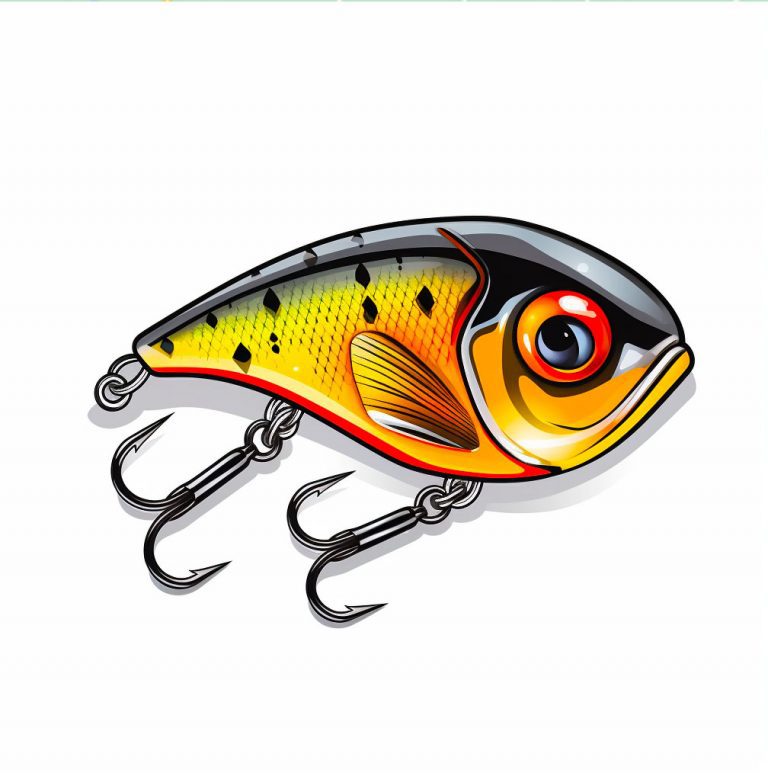
Crankbait Bass Fishing: A Comprehensive Guide
As a seasoned bass fisherman, I have tried countless techniques and lures over the years. However, crankbait fishing has always been one of my favorite methods for catching bass. With the right technique and equipment, crankbaits can be incredibly effective in luring in those elusive and trophy-worthy fish. In this comprehensive guide, I will share […]

Guide To Catching Bass With Rapala DT Crankbaits
Introduction Bass fishing is one of my absolute favorite hobbies. There’s something about the thrill of the chase, the excitement of reeling in a big catch, that just can’t be matched. Over time, I’ve tried out a variety of different lures and techniques to reel in those big bass, but I have to say that […]
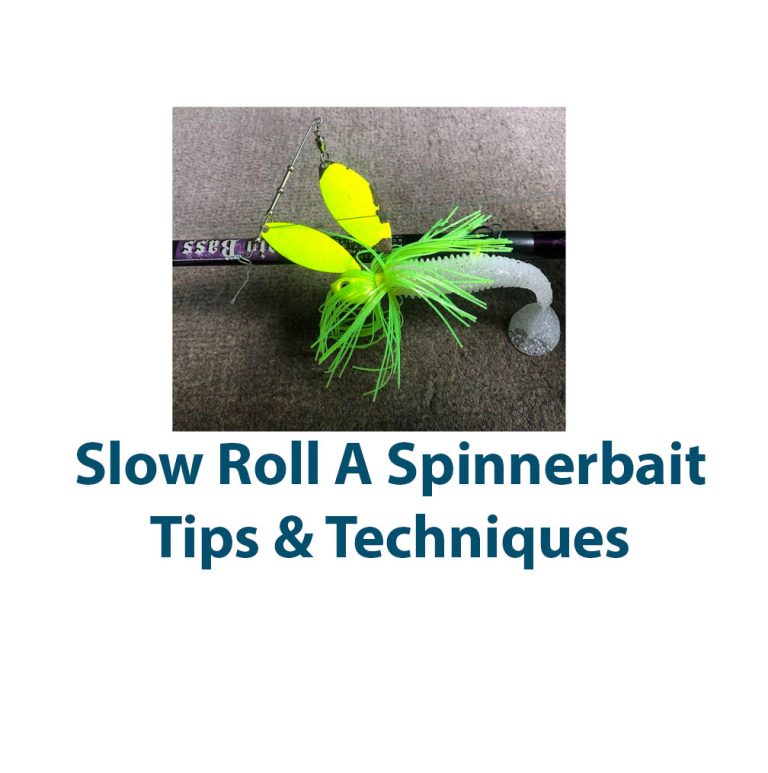
Slow Rolling A Spinnerbait
Slow Rolling A Spinnerbait: A Comprehensive Guide I enjoy fishing a lot, and I’ve experimented with a variety of methods and equipment to get the best catches. Slow rolling a spinnerbait is a method that has regularly worked for me. Using this method, the bait is brought up slowly and steadily so that it can […]
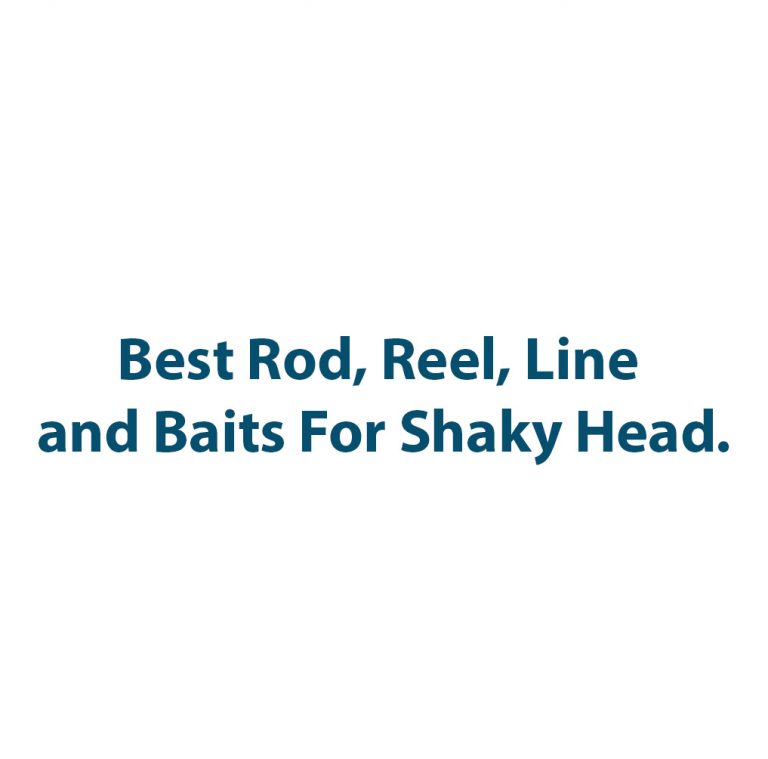
Best Rod, Reel, Line and Baits For Shaky Heads
Introduction Hey there, fellow fishing enthusiasts! Are you ready to dive into the exciting world of shaky head fishing for bass? Well, you’re in luck because today we’re going to explore the best rod, reel, line, and baits to use for this popular technique. Whether you’re a beginner or a seasoned angler, having the right […]
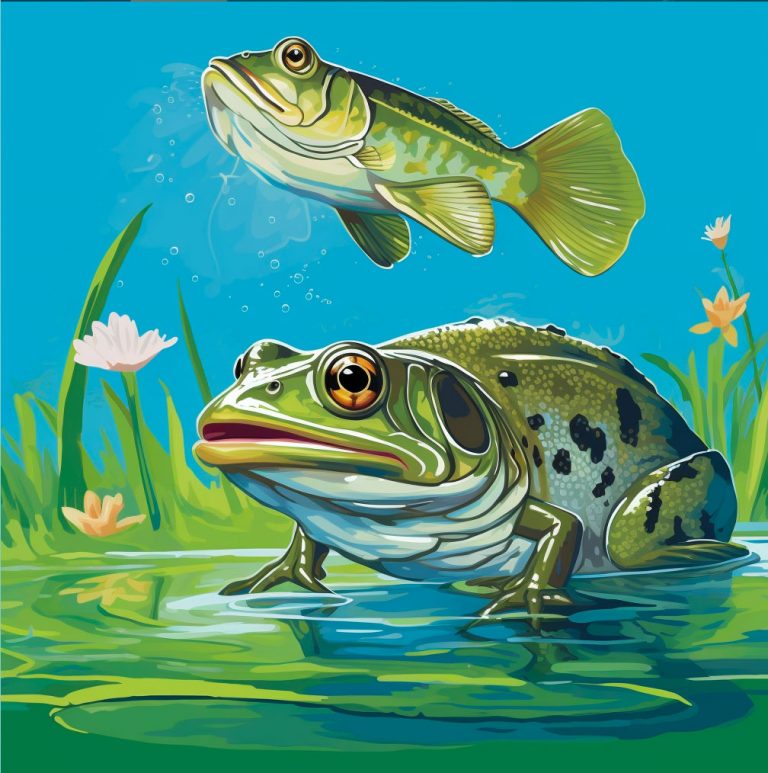
15 Topwater Frog Techniques: Catch The Biggest Bass
Introduction Hey there, fellow anglers! If you’ve clicked on this article, then I’m sure you’re just as excited as I am to learn the top 15 techniques for topwater frog fishing for bass. But before we jump into those techniques, let me give you a little background on why topwater frog fishing is such an […]
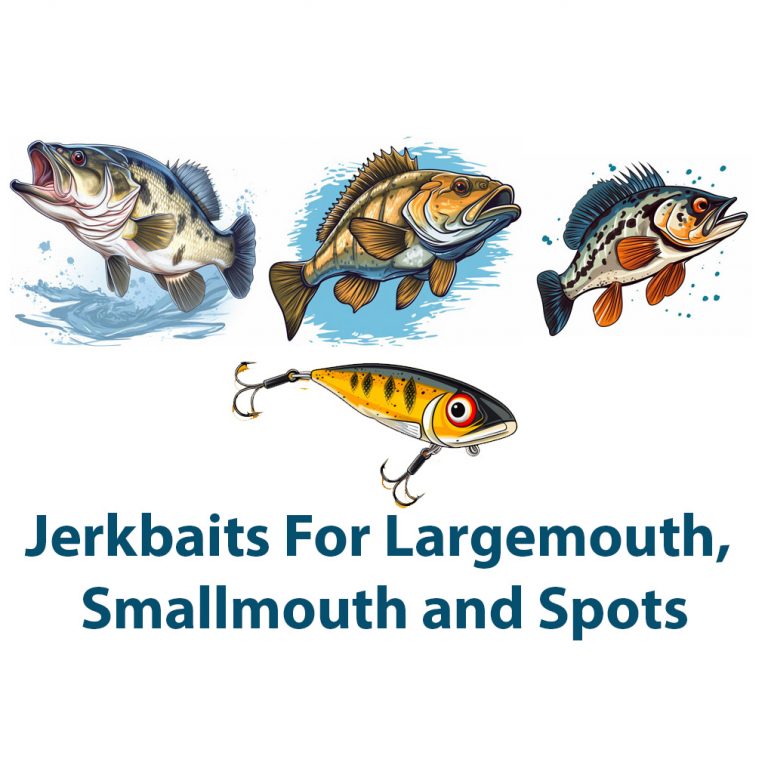
Jerkbaits For Largemouth, Smallmouth and Spotted Bass
Have you ever heard of a jerkbait? If you’re an avid bass fisherman, chances are you have. But if you’re not quite sure what a jerkbait is or how to use it, don’t worry. I was in the same boat (or should I say, fishing boat) as you not too long ago. However, I have […]

